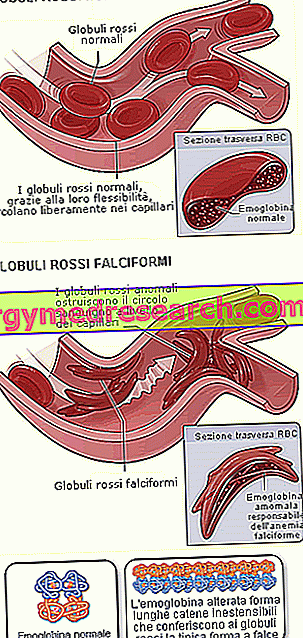PROPECIA ® is a drug based on Finasteride
THERAPEUTIC GROUP: Dermatological preparations - Testosterone inhibitors 5 alpha reductase
IndicationsAction mechanismStudies and clinical effectiveness Usage and dosage instructionsWarnings Pregnancy and lactationInteractionsContraindicationsUndesirable effects
Indications PROPECIA ® - Finasteride
PROPECIA® is a drug used in the treatment of androgenetic alopecia with the aim of blocking hair loss during the early stages of the disease.
Mechanism of action PROPECIA ® - Finasteride
Androgenetic alopecia, more commonly known as common baldness, is a condition characterized by progressive thinning of hair, associated with a miniaturization of the stem.
Decades of research in this area, given the aesthetic-commercial importance of this pathology, have allowed us to identify both the pathogenetic mechanism and one of the main etiological triggering factors, represented by the hormonal imbalance of androgenic hormones.
More precisely, the accused seems to be the enzyme testosterone 5 alpha reductase type II, which is present above all at the level of the hair bulbs of the scalp, and is able to transform testosterone into its androgenically active metabolite known as dihydrotestosterone, responsible for the androgenising effects of this hormone, including the miniaturization of the hair shaft and hirsutism, often present in patients with androgenetic alopecia.
Consequently, the use of active ingredients such as finasteride, contained in PROPECIA ®, guarantees an arrest of the progressive hair thinning in the middle frontal area of the scalp, inhibiting with greater affinity the enzyme testosterone 5 alpha reductase type II, and thus arresting the insult exercised by dihydrotestosterone.
Studies carried out and clinical efficacy
1. FINASTERIDE AND QUALITY OF LIFE
Interesting work in which it was observed that the administration of finasteride in patients suffering from androgenetic alopecia could, by improving the dermatological aspect, contribute to a significant improvement in the quality of life of these patients and their social relationships.
2. FINASETRIDE EFFECTIVENESS AND SAFETY IN THE TREATMENT OF ANDROGENETIC ALOPECIA
Randomized study evaluating the efficacy and safety of finasteride administration for the treatment of androgenetic alopecia in more than 3, 000 patients. Positive results have shown progressive hair regrowth without clinically relevant side effects.
3. FINASTERIDE AND ERECTILE DYSFUNCTION
Study that investigates the side effects of finasteride. In particular, the authors focus on the persistence of erectile dysfunction also following the suspension of treatment, which could represent a deleterious condition for the patient's state of physical and mental health.
Method of use and dosage
PROPECIA ®
Coated tablets containing 1 mg of finasteride:
a regression of scalp thinning was observed in most studies with the administration of 1 mg of finasteride daily in conjunction with or away from meals.
The protective effects, which seem to reach maximum efficacy within 3-6 months from the start of treatment, regress completely in about a year after the therapy is suspended.
The entire therapeutic procedure must be supervised by your doctor.
Warnings PROPECIA ® - Finasteride
The use of PROPECIA ® should be preceded by a careful medical examination to assess the "hormonal" nature of baldness and the absence of contraindications to treatment with finasteride.
It is useful to remember that this active ingredient is able to determine a significant drop in blood concentrations of PSA, an antigen used as a marker of prostate cancer, thus making the diagnosis of malignant prostatic diseases more complex.
PROPECIA ® contains lactose, therefore its intake is contraindicated in patients with galactose intolerance, lactase enzyme deficiency and glucose-galactose malabsorption.
PREGNANCY AND BREASTFEEDING
PROPECIA ® is contraindicated in the treatment of female androgenetic alopecia during pregnancy, as finasteride, by altering the normal androgenizing activity of testosterone and dihydrotestosterone, could lead to alterations in the correct development of the external genital organs and their reproductive capacities.
Interactions
The hepatic metabolism to which finasteride is subjected, could expose the active principle to pharmacologically relevant interactions with inducers and inhibitors of the citrochromial system.
In this case, even significant changes in the efficacy and safety of PROPECIA ® therapy could be observed
Therefore it would be advisable to consult your doctor before undertaking the simultaneous intake of other drugs.
Contraindications PROPECIA ® - Finasteride
Taking PROPECIA ® is contraindicated in patients with severe liver disease or hypersensitivity to the active ingredient or to one of its excipients.
The use of this drug is also contraindicated during pregnancy and lactation.
Undesirable effects - Side effects
The low dosage of finasteride used for the treatment of androgenetic alopecia significantly reduces the side effects associated with this active ingredient.
Several clinical trials but above all careful post-marketing monitoring with spontaneous reports have reported the appearance of palpitations, decreased libido, erectile dysfunction, testicular and breast tenderness and hypersensitivity reactions, including dermatological ones.
Note
PROPECIA ® is salable only under medical prescription.



